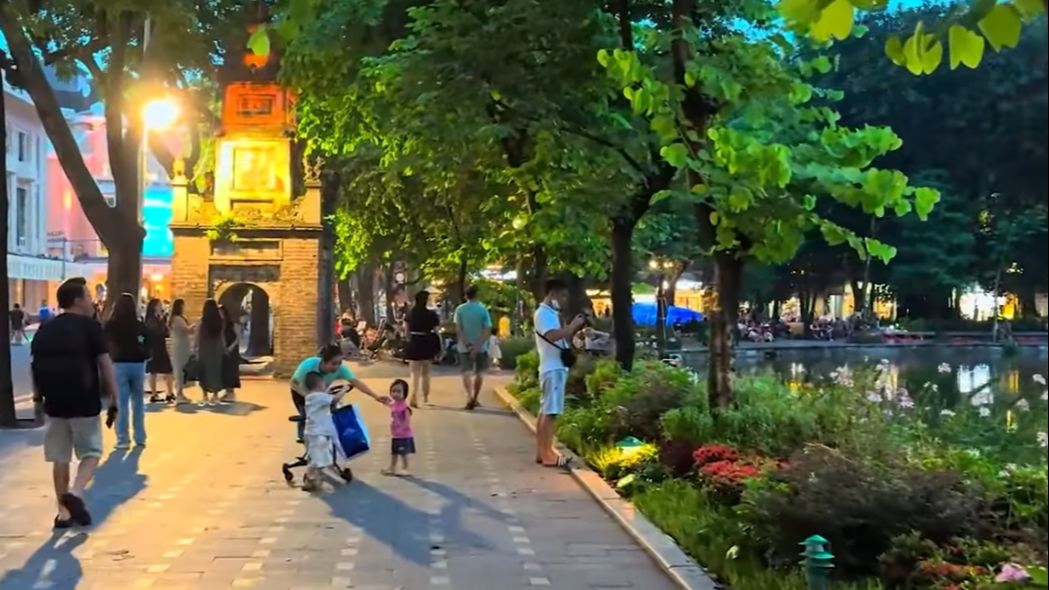Today we will talk about a very interesting topic that many people may not have thought about. Why does Vietnam prohibit foreign names and are there any exceptions or special notes?
First, imagine you have just given birth to a very lovely baby and you want to name your child James Nguyễn or Sofia Trần. Those names sound very Western. But when you go to the committee to register the birth, the official shakes their head and says no, the name must be in Vietnamese. So what is the reason for this regulation in Vietnam? One of the biggest reasons is to protect the national cultural identity. A person's name is not only a way to call each other but also a part of culture, history, and tradition. In Vietnam, names often carry deep meanings. For example, ngọc means precious gem, hùng means strong, or lan means gentle orchid.
These names are not only beautiful but also connected to the culture, customs, and soul of the Vietnamese people. If everyone wanted to name their child in a Western style, such as John, Mary, or David, then over time, pure Vietnamese names like Minh, Hương, Tâm could fade away. This is like having a fragrant bowl of beef pho but calling it Noodle Soup. It sounds okay but loses its Vietnamese essence. Therefore, the law stipulates that the names of Vietnamese citizens must be in Vietnamese or the languages of ethnic minorities in Vietnam, such as Tày, Nùng, or Thái. In short, it must be in the language of ethnic minorities in Vietnam or Vietnamese. This is to ensure that the names reflect the true national identity, without being mixed with foreign languages.
Another reason that sounds a bit dry but is very practical is to manage civil registration.
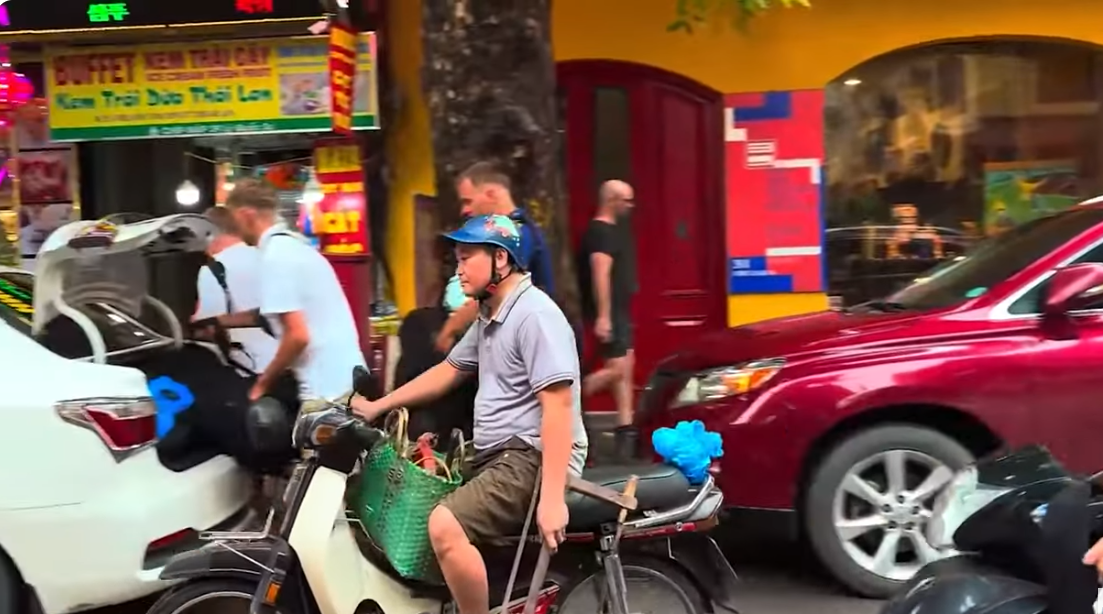
Imagine if someone names their child Alexander Victoria or even @Nguyễn123, the national database system would be very complicated. For example, if you name your child Nguyễn Thị Elizabeth Alexandra, not only is it long-winded but also difficult to enter into the computer system. Not to mention that when going to school, working, or doing paperwork, a long, convoluted, or foreign name can cause difficulties for both the caller and the listener. Because not everyone knows foreign languages. Another reason is to ensure that names do not violate traditional customs or negatively affect others. For example, if you name your child Nguyễn Ronaldo after a famous football player, it sounds nice but may be considered inappropriate for Vietnamese culture.
Or suppose you name your child after a great historical figure, then you will definitely be rejected because this is an unwritten law to avoid disrespecting historical and cultural figures. Furthermore, the law also prohibits names that infringe on the rights of others. For instance, if you name your child Nguyễn Văn VinFast to promote a brand, not only will it be rejected, but you may also risk being sued. That is the story of Vietnamese people getting married and having children. So now are there any exceptions? For example, what if you marry a foreign spouse?
Can you not name your child in an international style? Don't worry, Vietnamese law still has some very interesting exceptions to be flexible in certain special cases. For example, if the child has foreign nationality, this is of course the biggest exception. If your child does not hold Vietnamese nationality but holds foreign nationality, such as Japanese, Korean, or American, then you are allowed to name them in a foreign language according to the regulations of that country, no discussion needed. For example, if you marry a Spanish person, and both spouses agree in writing that the child will hold Spanish nationality, then you can name your child Sofia Garcia or Alexandro Trần.
In this case, the birth certificate will be issued according to the regulations of the country of the child's nationality, and the foreign name will of course be accepted. In fact, there are many cases where children with one foreign parent hold Vietnamese nationality but are still named in a half-Western, half-Vietnamese style, such as Daniel Nguyễn or Sofia Trần, as long as the name can be written in Latin letters and does not violate traditional customs. Not only that, there is an interesting exception for those who naturalize in Vietnam or apply to regain Vietnamese nationality but still retain foreign nationality.
In this case, they are allowed to choose a name that combines Vietnamese and foreign elements. For example, a naturalized person can choose a name like Nguyễn John, Trần Maria, or Nguyễn Xuân Son, Đinh Hoàng La, Đinh Hoàng Mắc. This creates flexibility for foreign elements, helping them maintain their Vietnamese identity while also preserving a part of the culture of another country.
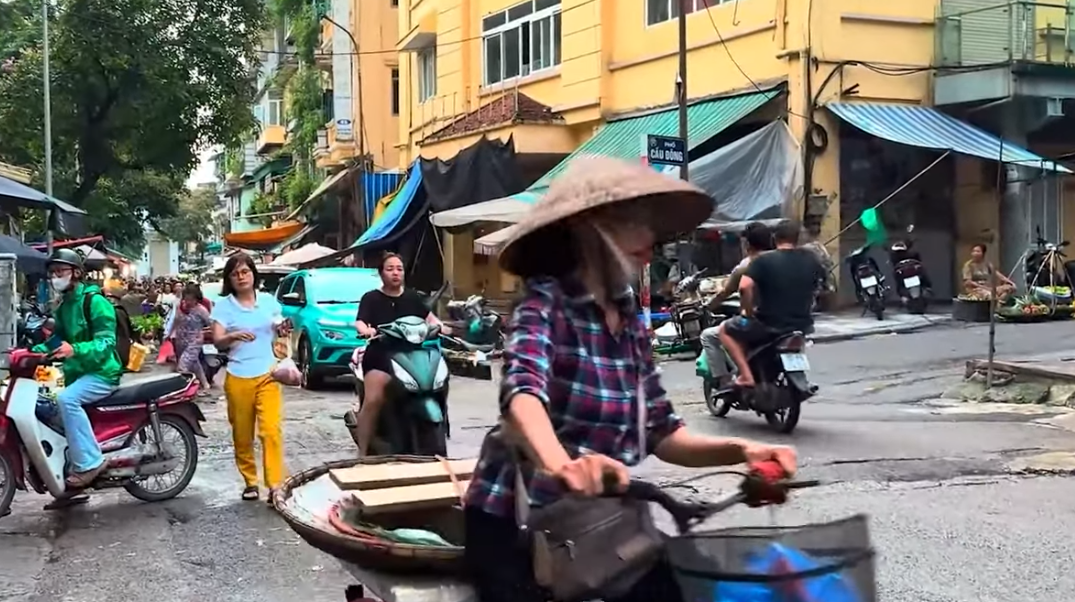
A clever loophole that many parents apply is to transliterate foreign names into Vietnamese. For example, instead of naming their child David Nguyễn, they would have to write it as Đa vít followed by Nguyễn, not as David written in English. That is the legal requirement. As for calling your child by a foreign name at home, feel free to do so. For example, the birth certificate says Nguyễn Thị Minh Anh, but at home you call your child Ema or Bela or Sena, whatever you like. This is very common in Vietnam, especially in families with foreign elements or modern families today. In addition to not being able to name children in foreign languages, Vietnamese law also has some other notes to ensure that the child's name is valid.
Here are a few things that parents need to remember.
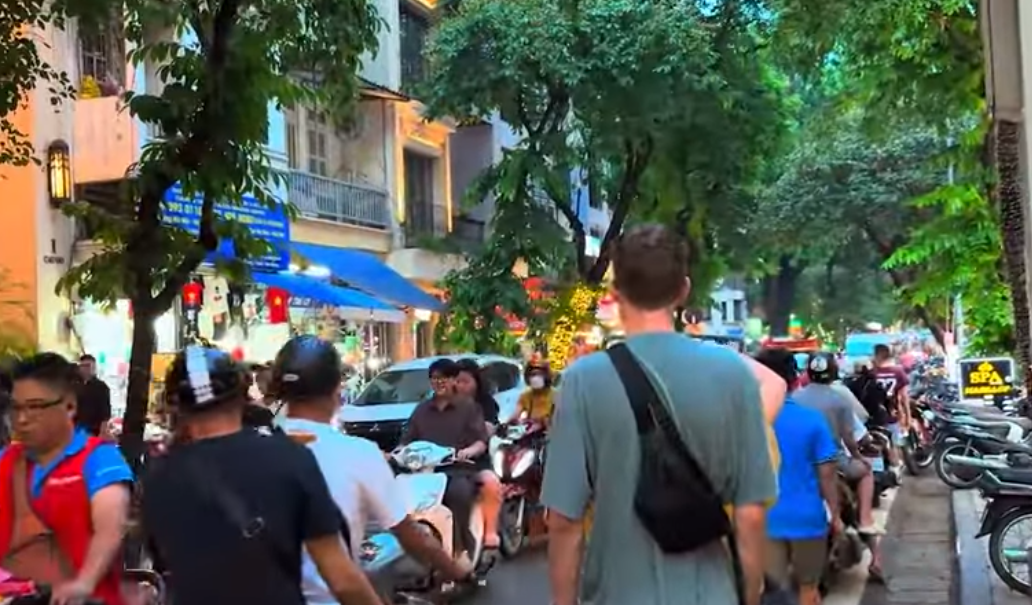
Although there are no specific regulations on the maximum number of characters, names should not be too long to avoid difficulties in usage. For example, a name like Nguyễn Trần Linh San Như Mai Xương Ngọc. It sounds nice, but when filling out paperwork or calling in class, both parents and the child will find it very tiring. Another regulation is that names cannot contain numbers or special characters like @, #, $, %,... For example, Nguyễn Văn 123 or Lê Thị @ will definitely be rejected immediately. The reason is to ensure consistency in the national database.
Names also cannot infringe on the legal rights of others or violate traditional customs. For example, you cannot name your child Nguyễn Văn Phân if that name is considered to have negative connotations, is laughable, or offends someone. However, determining what constitutes an infringement or a violation of traditional customs can sometimes be vague, so it requires careful consideration. Another example is that there are cases where someone wants to name their child Nguyễn Văn Maradona, Messi, Ronaldo because they are football fans, but the civil registration agency will definitely reject it because this name is not suitable for Vietnamese culture and may cause confusion.
In the end, they named their child Nguyễn Văn Đạt but still call them Maradona at home for fun, and no one can say anything. You can see that the prohibition on naming children in foreign languages in Vietnam is not to make it difficult for parents or anyone but to protect cultural identity, ensure consistency in management, and help your child have a meaningful and easy-to-use name. Nevertheless, the law still has flexible exceptions, especially for cases with foreign elements.
So that is in Vietnam, what about other countries?
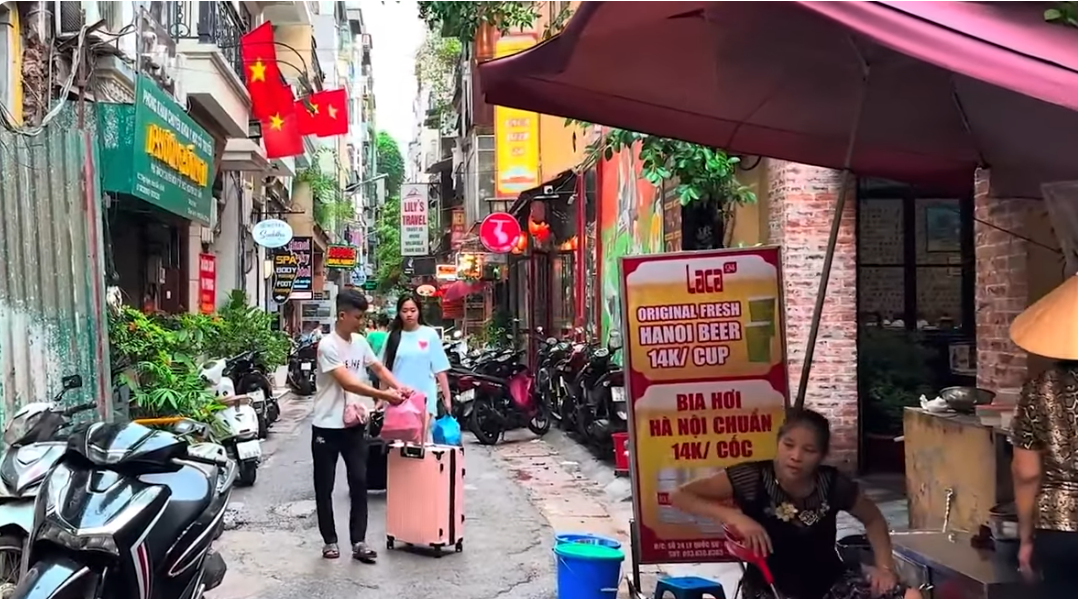
Let's take a quick look around the world. In Europe, naming children is also not as free as one might wish. Many countries have approved lists or require names to be compatible with local language and culture. The goal is to protect children from bizarre names and preserve national identity. For example, Iceland has a law since 1993 that requires choosing from 2000 Icelandic names, rejecting foreign names. Germany requires specifying gender and prohibits names that are not practical. France also prohibits names that mock children. In America, especially the US, it is known for its liberalism.
In the US, each state decides its own naming laws and almost allows everything from Apple to hashtag or @. However, names cannot be offensive, cannot be too long, usually under 30 characters, or violate trademarks. For example, in California, it is prohibited to name a child Hitler. In Asia, it is quite diverse but often prioritizes local languages like Vietnam. China requires names to be written in Han characters and prohibits strange characters like @ or politically sensitive names. Japan limits names to 3000 Kanji characters and rejects names like demon due to their negative meanings.
India is more liberal but prohibits names that discriminate by caste or religion. South Korea uses Hangul and allows transliteration of foreign names like John to Geor, unlike Vietnam. Asia is less prohibitive if the name is validly transliterated. In Australia and New Zealand, names are free but prohibit bizarre or overly strange names that cause embarrassment. Saudi Arabia requires names to follow Islamic guidelines and does not allow names with Western elements. South Africa prohibits names that discriminate by race; each country has its own reasons.
Thus, naming regulations in each country reflect a unique identity. Vietnam and Europe maintain traditional languages, while America prioritizes individual freedom. Most other Asian countries balance between tradition and modernity. Wherever it is, the common goal is to protect children and ensure that names are usable.
